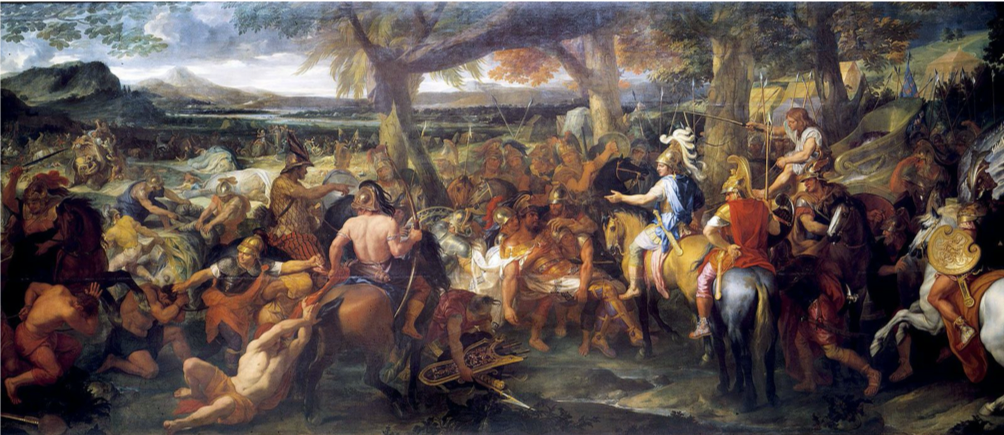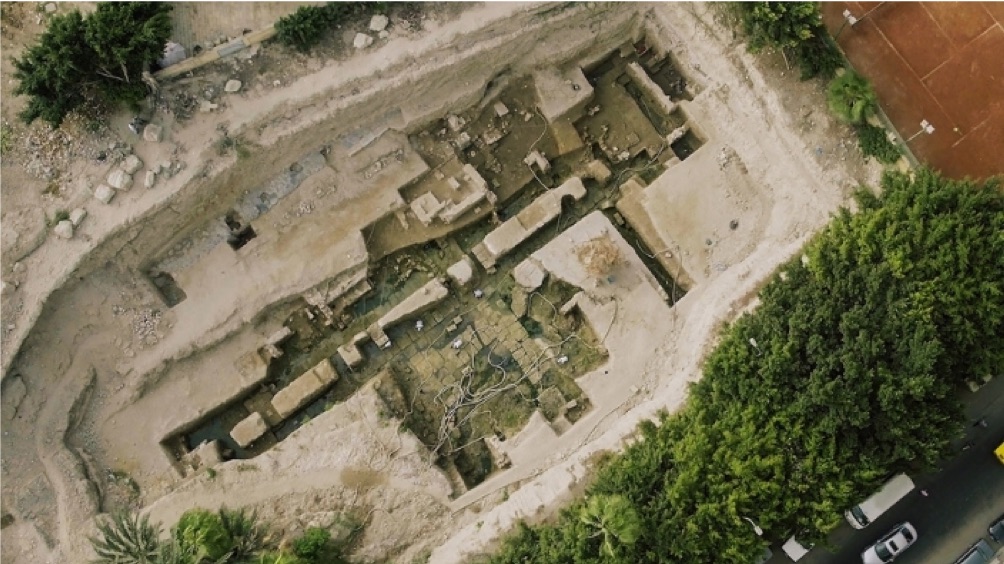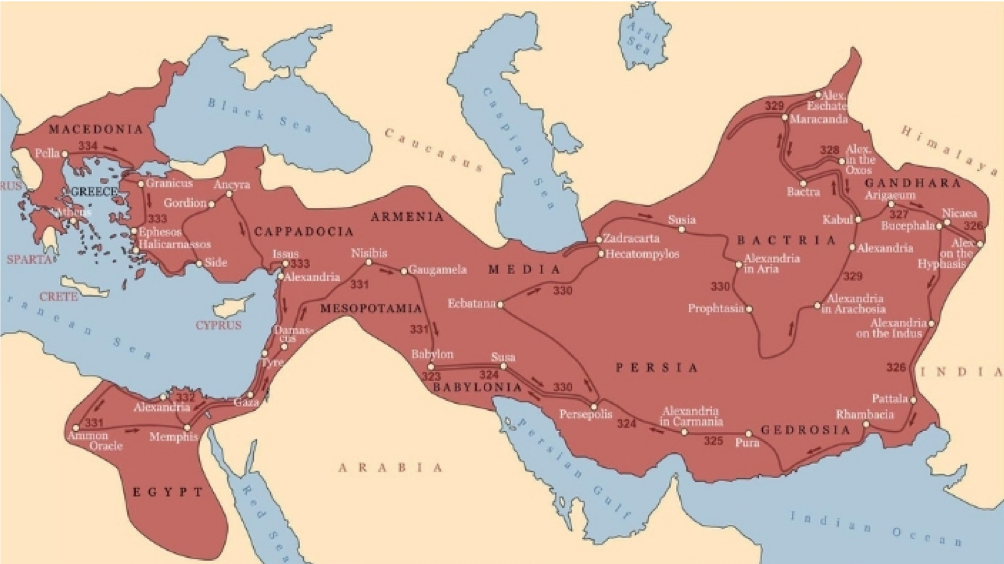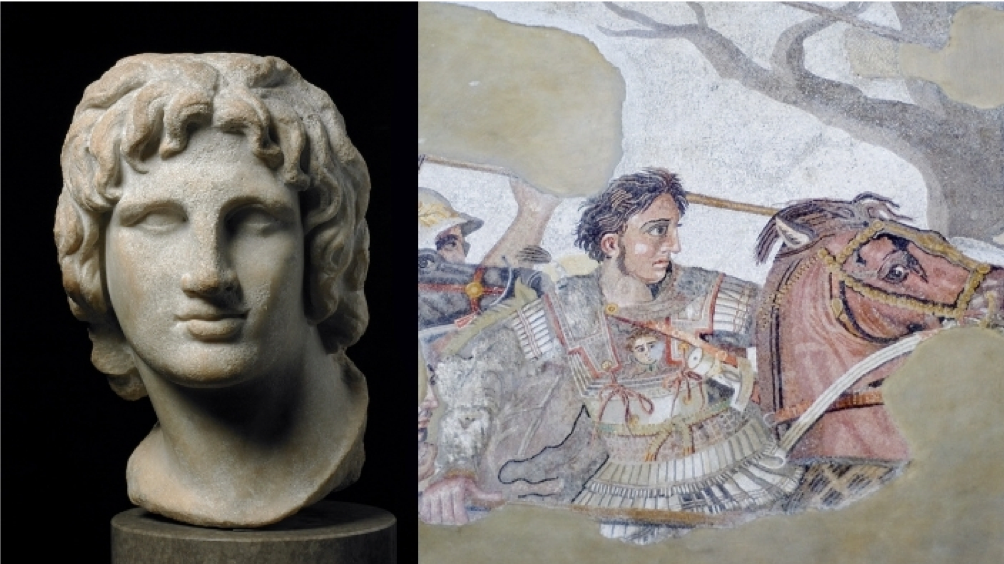By John Voutos
Alexander the Great, the King of Macedonia (20/21 July 356 BC – 10/11 June 323 BC), was the world’s most powerful leader. He bulldozed his way through empires across the Middle East and found cities in several countries, including Turkey, Egypt, Afghanistan, Iran, Tajikistan, Uzbekistan, Pakistan, Syria, and India. Below are five cities founded by the great leader.
1. Punjab, India
Alexander the Great launched his campaign into the Indian subcontinent of present-day Afghanistan and Pakistan in 327 BC. Alexander contested King Porus for reign over Punjab, known then by the ancient Greeks as Pentapotamia in the Battle of the Hydaspes a year later. The Battle of Hydaspes saw Alexander allow King Porus to co-govern as a “satrap”. Three years later, after the death of Alexander the Great, Chandragupta Maurya of Magadha founded the Maurya Empre in India. Punjab today lies on India’s northern border with Pakistan, a few hundred kilometres from the capital of New Delhi. Punjab is on the western bank of the Beas/Hyphasis River. It’s important to note that Punjab is home to one of the earliest known civilisations, the Indus Valley civilisation, in South Asia.

2. Alexandria, Egypt
Alexandria, Egypt’s third-largest city and Africa’s seventh-largest, is probably his most popular discovery. Alexander found his namesake in 331 BC during his conquest of the Achaemenid Empire. Alexandria became the seat of the Ptolemaic Kingdom, an ancient Hellenistic state, and one of the most important and greatest centres of Hellenic civilisation. Alexander had other cities in sight, though, and commenced his Persian conquest a few months later. Alexander died upstream in Babylon in 323 BC before general Ptolemy stole his body and laid it to rest in Alexandria. Alexander’s tomb became a temple for the Egpytians before the sands of time buried ancient Alexandria 35 feet under.

3. Qalatga Darband, Iraq
Qalatga Darband is one of the more recent cities to be linked to Alexander the Great. Qalatga Darband is an ancient city located in Iraqi Kurdistan founded by Alexander in about 331 BC on his warparth to Darius III, King of the Achaemenid Empire of Persia. The Qalatga Darband, “castle of the mountain pass” in Kurdish, is a large-walled city of the Hellenistic/Parthian period 330 kilometres from Baghdad that has been the focus of archaeologists from the British Museum for years now. The discovery of two Hellenistic statues, supposedly of Aphrodite and Alexander the Great, helps link Qalatga Darband as Alexander’s “lost city”.
4. Several in Afghanistan
Alexander the Great invaded Afghanistan in 330 BC as part of his conquest of the Persian Empire. He would reign King of Persia for the next seven years until his elusive death in June 323 BC. During this period he found many cities in modern-day Afghanistan, includign Kandahar, Herat, Ai-Kahnoum, Bagram, Ghazni, and possibly Farah. He discovered many by ‘accident’ and many for strategic purposes. Many are important citiies today, including Herat, which is the third-largest city in Afghanistan today.

5. Thrace Alexandroupolis, Medians
Alexandropolis in the Thracian region of Maedians was the first town founded by Alexander the Great in 340 BC, after defeating a local Thracian tribe at just 16 years old. The area is disputed to have been a military colony rather than a city. The location of Thrace Alexandropoulis is unknown today but is speculated to be apart of modern-day Bulgaria. It is not to be confused with Thrace in southeastern Europe.


